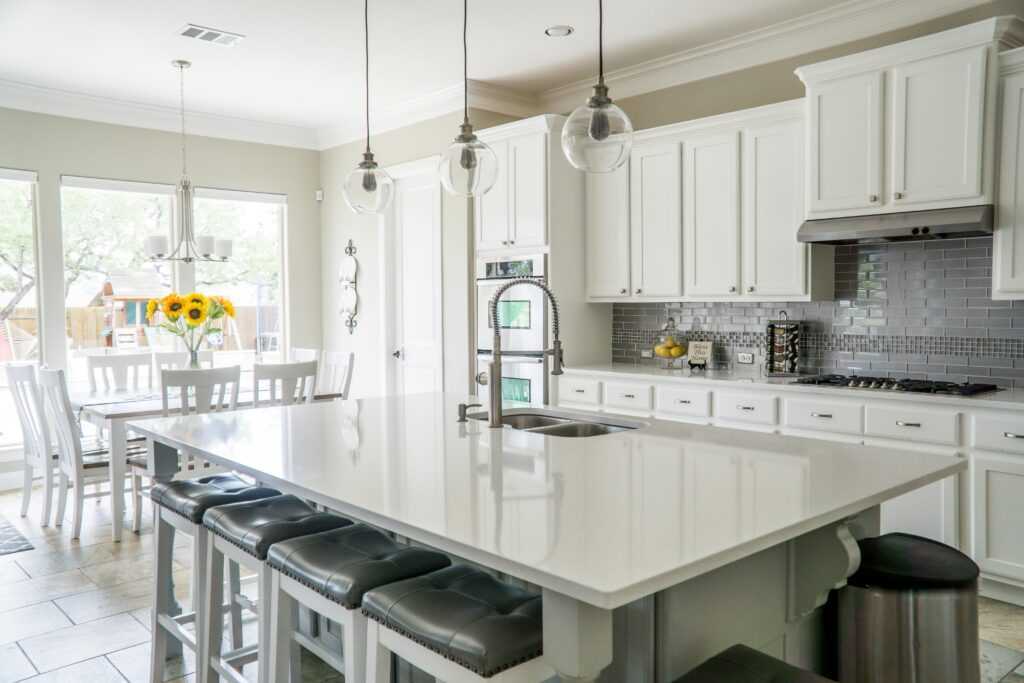We all fall into habits in the kitchen. Most of them are harmless, some even helpful — but others? They quietly cost you minutes, effort, and sometimes your patience. What should be a simple, satisfying part of the day ends up feeling messy, inefficient, or just too hard.
It’s not always about cooking ability — more often, it comes down to how your kitchen is set up and the routines you’ve slipped into without realising. Even the tools you use play a role. Having reliable gear, like trusted Smeg appliances, can smooth out the process and give you back time you didn’t know you were wasting.
Once you start noticing the friction points, they’re surprisingly easy to fix.
A Layout That Works Against You
If it feels like you’re constantly crossing the room mid-meal, your kitchen might not be arranged in a way that supports how you cook. Tools and ingredients should be stored where you naturally reach for them — not where there happened to be space when you unpacked the boxes.
This is one of those changes that doesn’t need a renovation. Swapping a drawer’s contents, moving the chopping board closer to the knives, or keeping the coffee mugs near the kettle can completely change your kitchen flow.
Benchtop Clutter That Slows You Down
When your benchtop becomes a holding zone for mail, small appliances, and half-finished projects, you start every meal at a disadvantage. It might only take ten seconds to move something aside, but it adds an extra mental step — and makes the space feel more chaotic than it is.
Clearing the bench doesn’t mean going full minimalist. Just make sure what stays out is something you actually use regularly. The rest can be tucked away, freeing up space and breathing room.
Doing Everything the Hard Way
There’s no prize for chopping onions from scratch every single night. Many people resist shortcuts because they think it’s “cheating” — but keeping prepped ingredients on hand is just smart. A container of chopped veggies or cooked rice in the fridge isn’t lazy — it’s the reason dinner gets made at all on a busy night.
Even small preps can take the edge off. Washing your greens ahead of time or making an extra portion of dressing can turn Thursday night into a breeze.
Tools That Make Simple Tasks Slower
If you’ve ever had to toast the same piece of bread twice, or jiggle a pan lid into place, you know how frustrating bad tools can be. They don’t just cost time — they chip away at your patience.
You don’t need a drawer full of fancy gear. Just a few solid, well-made essentials that work every time. That’s what makes the difference between a kitchen that supports you… and one that slowly wears you down.
Depending Too Much on the Recipe
When you’re constantly checking measurements, steps, and cooking times, it’s hard to get into any kind of rhythm. Recipes are useful — but when they become a crutch for every meal, cooking starts to feel more like homework.
Getting familiar with a handful of flexible, go-to meals you can cook from memory will save you serious time. They also make it easier to improvise when you’re low on ingredients or energy.
A Clean-Up Routine That Comes Too Late
Leaving the mess until the end is tempting — but also makes your kitchen feel harder to return to next time. Cooking in a space that’s already clean is far more inviting than one where last night’s dishes are still waiting.
You don’t need to scrub everything mid-meal. Just rinsing, stacking, and wiping as you go can take the weight off later. It’s less about the work, and more about keeping your space feeling light and usable.
These habits sneak in quietly, but they shape how you feel about your kitchen day after day. And the fix isn’t about doing more — it’s about doing smarter. A few small changes, some better tools, and a little more intention in your setup can bring back the ease (and even the enjoyment) that’s been missing.


 Roger Estes has played a crucial role in the development of Residence Resale Tactics, bringing his analytical skills and attention to detail to the project. As a dedicated helper, Roger has been instrumental in researching emerging market trends and ensuring the platform stays ahead of the curve in providing up-to-date real estate information. His commitment to accuracy and relevance has been essential in creating a resource that real estate professionals and homeowners can rely on for practical guidance.
Roger's contributions go beyond just research; his proactive approach and collaborative spirit have fostered a productive working environment within the team. His efforts have helped shape the platform's strategic direction, allowing Residence Resale Tactics to deliver content that is both insightful and actionable, thereby enhancing its reputation as a trusted authority in the real estate industry.
Roger Estes has played a crucial role in the development of Residence Resale Tactics, bringing his analytical skills and attention to detail to the project. As a dedicated helper, Roger has been instrumental in researching emerging market trends and ensuring the platform stays ahead of the curve in providing up-to-date real estate information. His commitment to accuracy and relevance has been essential in creating a resource that real estate professionals and homeowners can rely on for practical guidance.
Roger's contributions go beyond just research; his proactive approach and collaborative spirit have fostered a productive working environment within the team. His efforts have helped shape the platform's strategic direction, allowing Residence Resale Tactics to deliver content that is both insightful and actionable, thereby enhancing its reputation as a trusted authority in the real estate industry.